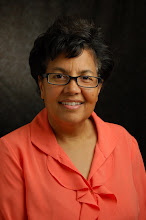Often, when we think of healthful living, what comes to mind is exercise and diet and other factors related to our physical wellbeing. And for sure, these are among several important keys to maintaining good health. But did you realize that exercise and diet, among other things, can also impact your mental health? May is Mental Health Month, and I really like the theme that Mental Health America has chosen for its 2010 awareness campaign: Live Your Life Well. Though I don’t necessarily agree with every concept they promote, especially when it comes to conventional psychiatric treatment, I do like this year’s theme and its emphasis on lifestyle and prevention.
Here are the 10 tools they recommend for coping with life and living life well:
• Connect with others
• Stay positive
• Get physically active
• Help others
• Get enough sleep
• Create joy and satisfaction
• Eat well
• Take care of your spirit
• Deal better with hard times
• Get professional help if you need it
To this list, I would add that if you have a friend or loved one who is suffering from mental illness (depression, bipolar disorder, schizophrenia, etc.), and you are seeking natural, alternative treatment, there is help. Listed below are just a few resources you might consult (in collaboration with your health care provider):
The Pheiffer Treatment Center: http://www.hriptc.org/index.php
Orthomolecular Treatment for Schizophrenia, by A. Hoffer, M.D., Ph.D.
Healing Schizophrenia, by Dr. Abram Hoffer, M.D., FRCP
Nutrition and Mental Illness, by Carl C. Pheiffer, Ph.D., M.D.
Vitamin B-3 and Schizophrenia, by Abram Hoffer, M.D.
Natural Healing for Schizophrenia and Other Common Mental Disorders, by Eva Edelman
Depression, The Way Out, by Neil Nedley, M.D.
Surviving Schizophrenia, A Manual for Families, Consumers, and Providers, by E. Fuller Torrey, M.D. (an excellent resource for understanding the disease and coping when a family member suffers from it)
If you think that your probability of being impacted by a mental health issue is slim, consider this: About 1 in 4 people will be affected by a mental health issue sometime in life. That could be you, or someone you know or are related to. Mental illness can strike at any time, and affects people across the spectrum of race, age, culture, socio-economic status, and religion. By adopting a healthy lifestyle you can lessen your chances of being struck with a mental illness, and if it does strike, a healthy lifestyle will help you to better cope with it. Here’s hoping that you live your life well!



